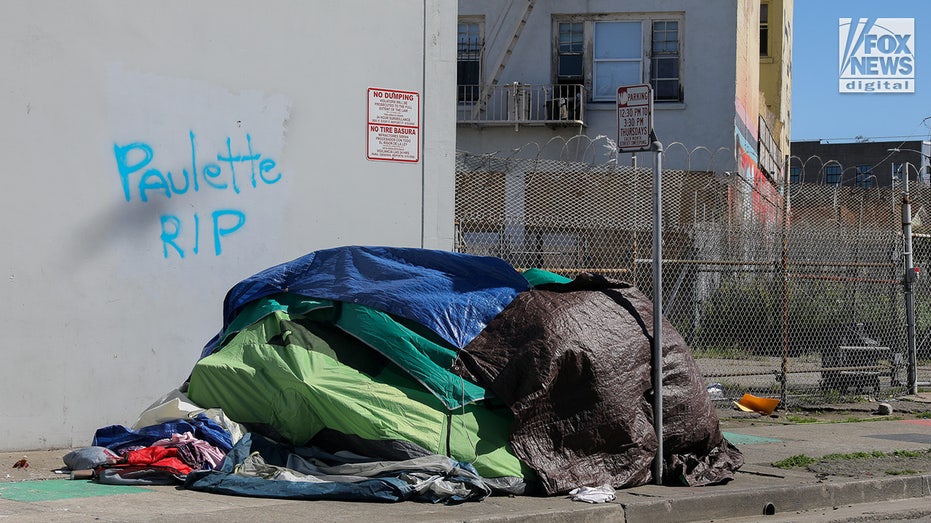In 2021, the City of Los Angeles announced that it would dedicate over $1 billion to provide much-needed services and resources to its homeless population. L.A. has consistently sought new ways to provide funds to fight what has become one of the city’s most pressing needs.
This included a quarter-percent sales tax, which generates more than $350 million every year that goes to a variety of initiatives. These include shelter beds, temporary housing services and the creation of affordable, permanent housing.
Yet despite all these innovative efforts, homelessness continues to rise. In 2018, the number of homeless people living in Los Angeles was 52,765. Last year, in 2023, that number had risen to 75,518.
This isn’t something unique to L.A. Cities like Portland, San Francisco and Seattle are all wrestling with reversing this trend.
To be sure, this is a monumental challenge. But there is hope.
There’s hope because a shift in thinking is starting to take hold. Leaders are beginning to understand that homelessness isn’t only a housing issue. Currently, policymakers, NGOs and civic leaders are thinking of other, less traditional solutions that support the whole person and address all root causes of homelessness.
Those facing homelessness need more than just housing to build an independent lifestyle and thrive. They need community. They need mentors and friends. They need the genuine love and support that we all need when challenges come our way.
In short, they need to be treated like human beings.
Housing solutions can and should be part of the response, but enduring change will only come when paired with critical resources like job training, addiction treatment and mental health services.
Because often, homelessness goes deeper than a lack of shelter. It’s impacted by the way you grew up and the situations you experienced. And it’s often an uphill battle that requires a healthy physical, emotional and spiritual well-being.
That’s the story a young woman named Sarah shared with our team not long ago.
From ages 3 to 6, Sarah was molested by a close family member. Throughout her childhood, her mother struggled with drug addiction, and physically and verbally abused Sarah as well.
Sarah told us how this trauma profoundly impacted the way she saw herself and her relationships with others. She said her painful childhood led to feeling “worthless, disgusting, and abnormal about myself, along with feelings of rejection and inadequacy due to my mom’s behavior towards me.”
When Sarah’s brother moved out and she and her mom were left to fend for themselves, Sarah’s mom relapsed. They were soon evicted, and then Sarah dropped out of high school. For the next several months they were left living in motel rooms and homeless shelters.
Then, finally, there was a ray of hope.
Sarah joined the Job Corps in 2020 at age 16. She began training to get a job that would support her and her mom.
That is, until COVID-19 hit.
During the pandemic, Sarah was kicked out of Job Corps and lost her only way to earn money. Once again, she found herself on the streets.
CLICK HERE FOR MORE FOX NEWS OPINION
That’s when Sarah came to our team at the Los Angeles Dream Center. The resources, support and sense of purpose she found here gave her hope. But her new friends also restored her confidence and dignity, and equipped her with the skills she needs to chase her own dreams.
“I plan to graduate with my GED and go to school for Human Services so that I can build a program for all youth who are homeless, abused, lost, or have no hope,” Sarah told us.
This demonstrates the power of holistic care, of being surrounded by a team of mentors and cheerleaders committed to helping people toward complete physical, emotional, and spiritual well-being.
Churches and other faith-based organizations are often well-equipped to provide the type of nurturing environment that focuses on restoring whole beings. When organizations like these work hand-in-hand with the state, we are more likely to get at the root causes of what leads to sustained homelessness and address the pain and trauma that leads victims into a downward spiral. A community that cares is the best recipe for solving this crisis. I know it works, because I’ve seen it work time and time again.
It turns out that homelessness is frequently the byproduct of years of destructive habits and patterns that have been repeatedly reinforced. What’s needed are new habits and a community that lovingly holds people accountable in their pursuit of a better life. That’s what thoughtful leaders on this issue are starting to put into practice. And that gives me hope. Hope for the people of our city that have been hopeless for far too long.





